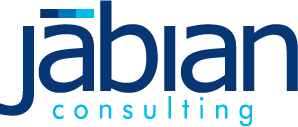Alex Daly and Amanda Meng are the leaders of the Jabian Equality Team (JET). For Pride Month, we sat down with Alex and Amanda to discuss JET, allyship, and how they will be celebrating Pride Month.
Q: What is JET’s purpose and what is your role within the group?
The purpose of the Jabian Equality Team (JET) is to facilitate a nurturing, vibrant, and inclusive work experience for our LGBTQIA+ colleagues and allies. It is our goal to create space for our LGBTQIA+ employees to be empowered, authentic, valued, and respected. We also provide opportunities for all Jabianites to be supportive and caring allies for LGBTQIA+ members of our broader communities through education and engagement. We work closely with our other DEI ERGs (JAAG, JWAG) to drive intersectionality within and outside of Jabian.
Alex: I joined JET soon after I started with Jabian – based on the past enriching experiences I’ve had as an ERG member in my career – and acted as the Dallas office lead. For 2021, I’m currently one of our JET National Co-Leads.
Amanda: I currently serve, along with Alex, as the JET National Co-lead, a role I started this year.
Q: How does JET reinforce Jabian’s diversity objectives to foster an inclusive culture?
Alex: JET is just one of Jabian’s employee resource groups (ERGs), and we partner with our fellow ERG leaders to plan learning and engagement opportunities that are open to all Jabian employees. Given our smaller size, this collaboration occurs naturally amongst our groups as we focus on our overall goals of inclusion, and I actually think it’s a huge benefit that everyone at Jabian can be invited to our JET and other ERG events, instead of only identified “members” which could limit the potential for allyship.
Amanda: Last summer JET sponsored a panel discussion on gender identity and gender expression with two panelists who are leaders and advocates in the trans community. That discussion brought education and awareness to our colleagues and resulted in Jabian putting a workplace transition policy into place. This kind of dialogue and meaningful change is all part of the inclusive culture for us.
Q: What is one way employees and clients can demonstrate allyship with their LGBTQIA+ colleagues?
Alex: I think something that’s always resonated for me is the understanding that being an ally is not an identity or who you are – it’s about what you actually do. We’ve all seen the power of active allyship in support of the Black community over the past year, which applies to the LGBTQIA+ community. Allyship is about learning, listening, and taking action (through volunteering, donating, protesting, etc.). If you want to be an ally, embrace opportunities to learn. If your organization hosts a learning event on gender identity, don’t sit it out because you think it doesn’t apply to you. Instead, approach it as an opportunity to learn about the experiences of other people and understand their challenges – you never know when that understanding may be needed in your own personal or professional life down the road.
Amanda: To me, the first step of allyship is being in a relationship. The true commitment of allyship starts with knowing and caring for someone then meaningful action and support can follow.
Q: How will you be celebrating Pride Month this year?
Alex: As always, I’ll be celebrating Pride Month by connecting with my friends and family, which feels like even more of a cause for celebration after the past 16 months we’ve all experienced. Our Jabian Dallas/Fort Worth office is celebrating by donating funds and volunteering at a Pride Picnic for LGBTQ SAVES, an incredible local organization dedicated to increasing safe spaces and providing affirmation and support to LGBTQ youth and their families. This will be the group’s first time getting together in person since the start of the pandemic, so we’re looking forward to an amazing event!
Amanda: In Atlanta, we celebrate pride in October, so I will look forward to a riotous celebration in the fall! In the meantime, JET has organized a panel discussion for this June on mutual aid for our colleagues to learn more about this form of community care and its particular relevance to the LGBTQ+ community.
